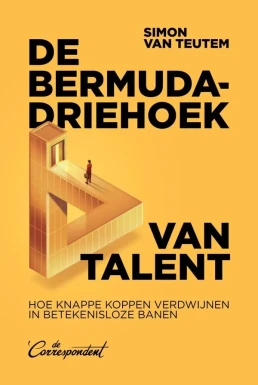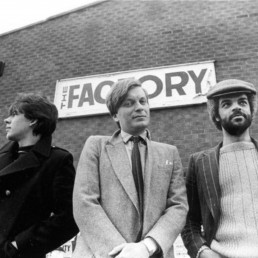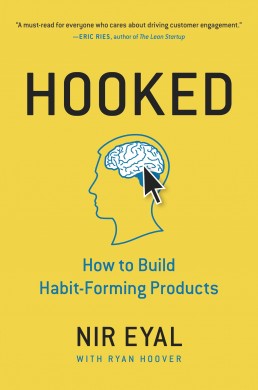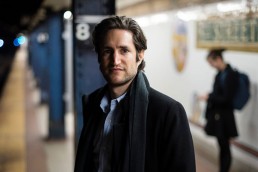Enshittification - Cory Doctorow
Enshittification, also known as crapification and platform decay, is a pattern in which two-sided online products and servicesdecline in quality over time. Initially, vendors create high-quality offerings to attract users, then they degrade those offerings to better serve business customers (such as advertisers), and finally degrade their services to users and business customers to maximize short-term profits for shareholders.
Canadian writer Cory Doctorow coined the neologism enshittification in November 2022,[1] though he was not the first to describe and label the concept.[2][3] Doctorow’s term has been widely adopted. The American Dialect Society selected it as its 2023 Word of the Year, with Australia’s Macquarie Dictionary following suit for 2024. Merriam-Webster and Dictionary.com also list enshittification as a word.[4][5]
Simon van Teutem - The Bermuda Triangle of Talent
Summary
In this book, (Dutch at the moment) Simon van Teutem shows how big companies recruit the smartest people – and what social consequences this has.
When Morgan Stanley intern Simon van Teutem’s hair falls onto his keyboard at the end of a long working day, he asks himself: what am I doing here? Like many other ambitious students, he wants to change the world. And yet he works late into the night for a bank. No world peace, cultured meat and climate breakthroughs, but Excel sheets, conference calls and business class flights. How did he end up here? In conversations with dozens of fellow students, bankers, lawyers and consultants, Simon van Teutem reconstructs how idealistic young people swim into the trap of big capital. The result is a candid insight into the world of big money, a mirror for everyone who is looking for meaning in work, and an urgent call to education, NGOs and the government to prevent the waste of talent.
'Like many other ambitious students, he wants to change the world. And yet he works late into the night for a bank.
'
Timothy Snyder - On Tyranny
On Tyranny
#1 NEW YORK TIMES BESTSELLER • A “bracing” (Vox) guide for surviving and resisting America’s turn towards authoritarianism, from “a rising public intellectual unafraid to make bold connections between past and present” (The New York Times)“Timothy Snyder reasons with unparalleled clarity, throwing the past and future into sharp relief. He has written the rare kind of book that can be read in one sitting but will keep you coming back to help regain your bearings.”—Masha Gessen
The Founding Fathers tried to protect us from the threat they knew, the tyranny that overcame ancient democracy. Today, our political order faces new threats, not unlike the totalitarianism of the twentieth century. We are no wiser than the Europeans who saw democracy yield to fascism, Nazism, or communism. Our one advantage is that we might learn from their experience.
On Tyranny is a call to arms and a guide to resistance, with invaluable ideas for how we can preserve our freedoms in the uncertain years to come.
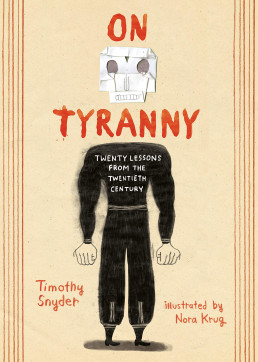
''Fascists rejected reason in the name of will, denying objective truth in favor of a glorious myth articulated by leaders who claimed to give voice to the people. '
'
On Tyranny - Timothy Snyder
About the book and discussions about the presented issues:
All rights belong to the owners of the works presented.
Fac 1, Factory Communications 1979-1992
Factory Records was a Manchester-based British independent record label founded in 1978 by Tony Wilson and Alan Erasmus.
The label featured several important acts on its roster, including Joy Division, New Order, A Certain Ratio, the Durutti Column, Happy Mondays, Northside, and (briefly) Orchestral Manoeuvres in the Dark and James. Factory also ran The Haçienda nightclub, in partnership with New Order.
Factory Records used a creative team (most notably record producer Martin Hannett and graphic designer Peter Saville) which gave the label and the artists recording for it a particular sound and image. The label employed a unique cataloguing system that gave a number not just to its musical releases, but also to various other related miscellany, including artwork, films, living beings, and even Wilson’s own casket and tombstone.
Two short clips about Factory artefacts

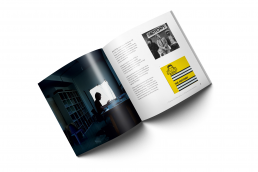


“I am not a piece of hash. I’m in charge of Factory Records. I think.”
Tony Wilson
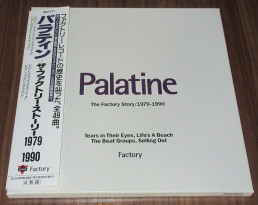

Fac 51, The Hacienda or How Not To Run A Club by Peter Hook - #update
The Hacienda: How Not to Run a Club by Peter Hook
The Haçienda was, as Hook says, in many ways the perfect example of how not to run a club – if you view a nightclub as a money-making business. But if, like the baggy trousered philanthropists Factory, you see it as an altruistic gift to your hometown and a breeding ground for the next generation of youth culture, it was, accidentally, purposefully, shambolically, anarchically, thrillingly, scarily, inspirationally, perfect.
Peter Hook is a founding member of Joy Division and New Order
See him talk about it.
See this short documentary about The Hacienda.
Hans Schnitzler - We Nihilists
Wij Nihilisten
An elite of tech entrepreneurs has succeeded in dominating people and society in a very short time. Since the introduction of the iPhone in 2007, services such as WhatsApp, Instagram, Snapchat or the cloud have become indispensable. In fifteen years, a collective digital conversion has taken place that has radically changed our lives.
In Wij nihilisten, Hans Schnitzler poses a question that is hardly ever asked: how did this virtual class manage to do this? Inspired by, among other things, Friedrich Nietzsche’s writings on nihilism, he goes in search of the cultural roots of this success. His quest immerses the reader in the wonderful world of the archetype of the internet age: the nerd. At the same time, he presents a mirror to us: in fact we are all nerds.
The data revolution threatens to eat its own children. With this book, Schnitzler urges us to face our own part in this. Because only when we are aware of this change is possible.
You can buy the book here (Dutch only):
https://www.debezigebij.nl/boek/wij-nihilisten/

'The one who sees it all, sees nothing'
C.S. Lewis
Videos about the book and discussions about the presented issues:
All rights belong to the owners of the works presented.
Hooked - Why we can't stop using some apps
Nir Eyal makes it clear why we are hooked to some apps.
Behavior Can Be Designed
Nir Eyal: ‘Whether you are designing the behavior change of your consumers or your own habits, you’ll benefit from understanding research I share from behavioral economics, neuroscience, and consumer psychology.’
Addictive Behaviors – Nir Eyal | Inside Quest #28
What makes some technology so habit-forming? | Nir Eyal | TED Institute
How to Build Habit-Forming Products | Nir Eyal @ Startup Grind Global 2017
Adam Alter - Irresistible
People have been addicted to substances for thousands of years, but for the past two decades, we’ve also been hooked on technologies, like Instagram, Netflix, Facebook, Fitbit, Twitter, and email—platforms we’ve adopted because we assume they’ll make our lives better. These inventions have profound upsides, but their appeal isn’t an accident. Technology companies and marketers have teams of engineers and researchers devoted to keeping us engaged. They know how to push our buttons, and how to coax us into using their products for hours, days, and weeks on end.
Tracing addiction through history, Alter shows that we’re only just beginning to understand the epidemic of behavioral addiction gripping society. He takes us inside the human brain at the very moment we score points on a smartphone game, or see that someone has liked a photo we’ve posted on Instagram. But more than that, Alter heads the problem off at the pass, letting us know what we can do to step away from the screen. He lays out the options we have to address this problem before it truly consumes us. After all, who among us hasn’t struggled to ignore the ding of a new email, the next episode in a TV series, or the desire to play a game just one more time?
“We live in an age of addiction — seemingly benign and otherwise — and Adam Alter, mixing the latest in behavioral science with briskly engaging storytelling, wakes us to an age-old problem that has found troubling new expression in the era of ubiquitous technology. You may never look at your smartphone in the same way again.”
—Tom Vanderbilt, author of Traffic and You May Also Like
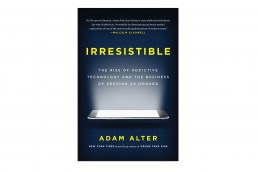
Check out this video to see him talking about the book



